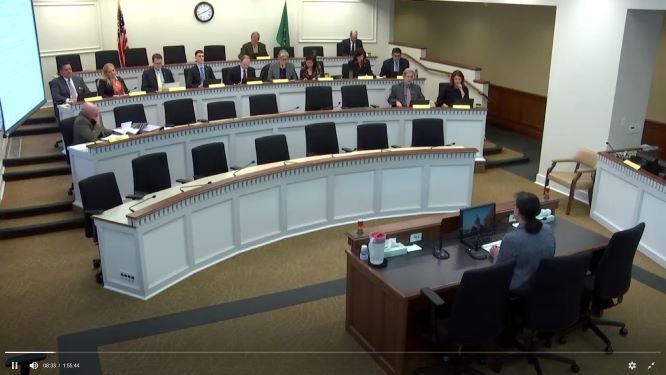By Sarah Nagy, CLS Attorney
Update: On March 13, the House failed to take a vote on the just cause bill before a key deadline and the bill will not move forward this session. CLS is committed to keep working with our partners and tenants impacted by eviction to strengthen this bill and get it passed next session.
Solving Washington’s affordable housing crisis is a fight with many fronts. Creating stability for the state’s most vulnerable renters will require a multi-pronged approach from the legislature, including increasing the housing supply, ensuring that affordable housing options remain affordable in the face of rising rents, and guaranteeing that those who are housed can stay housed.
This legislative session, we have the potential to transform landlord-tenant law and protect renters from housing instability by eliminating no-cause eviction. Rep. Nicole Macri (43rd LD) is championing a bill, HB 1656, which has passed out of committee and is moving toward the House floor, requiring landlords statewide to provide a legitimate business reason when they serve a tenant with an eviction notice.
Under current law, a landlord can evict a month-to-month tenant with twenty days’ notice. The landlord need not provide a justification. Even a tenant who is current on rent and not in violation of any lease terms has no legal defense to the eviction, and courts have no power to extend the twenty-day period, regardless of the tenant’s circumstances.
The twenty-day notice gives a tenant a little less than three weeks to find new lodging. That’s twenty days to find lodging that allows them to maintain their employment; to keep their children in school; and to reliably pay the rent going forward. If a tenant is rent-burdened (meaning they pay more than 30% of their monthly income toward rent, as more than half of renters in Washington did in 2018), then the costs of moving, storage, and one-time deposits and fees in addition to first month’s rent may be more than they can conceivably pay, even for an otherwise-affordable apartment.
Landlords’ representatives have explained to us that no-cause evictions are a valuable business tool for landlords, because there are situations in which it is beneficial to be able to remove a tenant without giving the tenant a chance to object. They cite “problem tenants” who make their neighbors uncomfortable or who might be confrontational, or who consistently leave the property in less-than-ideal condition while never quite rising to the level of an actionable lease violation.
However, they do not discuss the tenants who receive twenty-day notices after they put in one maintenance request too many, or the “problem tenants” whose problem is related to their young children, or the tenants who are asked to leave simply because the landlord, for some inarticulable reason, doesn’t like them. They do not discuss the fact that evicting someone without justification means a discriminatory motivation becomes almost impossible to prove.
Women, and particularly black women, face higher rates of eviction than men. Women with children face higher rates than women without children. People of color face higher rates of eviction than white people. Seniors and people with disabilities face greater barriers to relocating after an eviction. And low-income people of all genders, ages, and abilities are at greater risk of moving from eviction straight into homelessness.
A just cause statute would require that a landlord have a legitimate business reason to evict a tenant. These reasons include a tenant’s default in rent; a tenant’s noncompliance with a material term of the rental agreement; a tenant’s interference with others’ enjoyment of the premises; or a landlord’s decision to change the use of the property, whether to renovate it, to sell it, or to remove it from the rental market. Just cause eviction treats a rental agreement as an ordinary two-way contract, where each party is equally liable for a breach of its terms – as opposed to the current system, where a landlord can terminate the agreement regardless of whether the tenant is in breach.
Just cause has a long way yet to go in the legislature. HB 1656 passed out of committee, but with the promise that it will require significant further negotiation in order to advance. SB 5733, the companion bill in the Senate, was reduced to a study before it passed out of committee. We don’t need a study – we know what eliminating no-cause eviction could do to stabilize tenants in Washington. This session, Columbia Legal Services is working to make the legislature understand why the state needs just cause eviction, and to ensure that HB 1656 passes without compromising transformative tenant protections.

Recent Comments